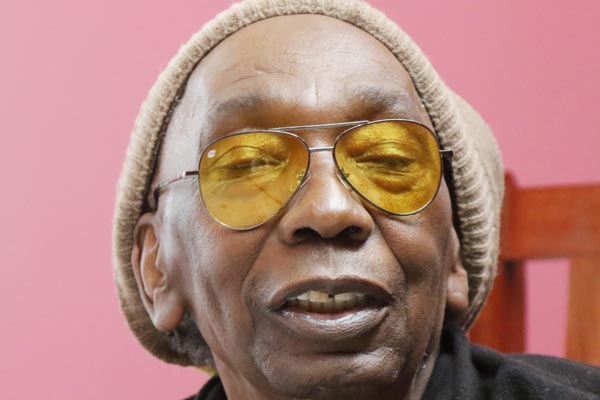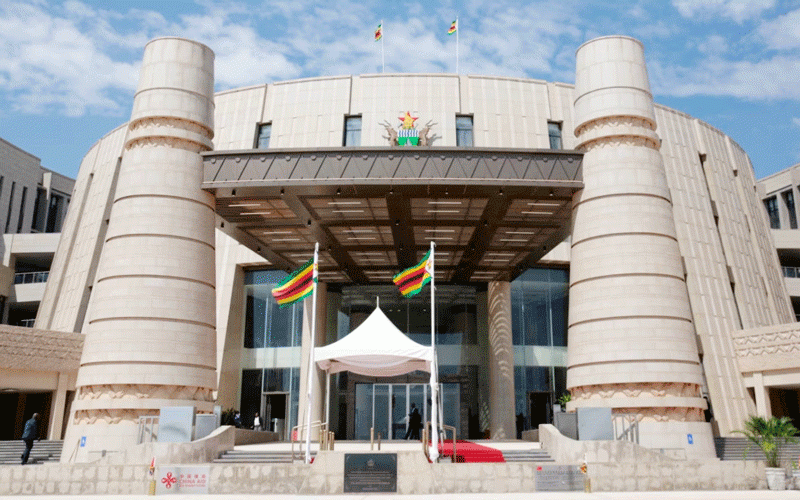
BY FRED ZINDI
For fear of being denied airplay and sometimes due to the fear of being arrested, many musicians shy away from singing protest songs or songs which they think will be seen as anti-establishment.
Only a few brave ones such as Thomas Mapfumo, Leonard Zhakata, Hosiah Chipanga, Raymond Majongwe and lately Hopewell Chin’ono have been courageous enough to take the protest route.
These brave musicians have been devoted to the artistic trade that perseveres after the truth, challenges the powerful and amplifies stories about people that might not otherwise be heard.
Just by singing on an issue concerning the masses, these musicians might influence its trajectory.
By exposing wrongdoing, they might bring it to an end.
By singing about some festering malfeasance, they might disinfect it.
Sometimes politicians do not want to hear about uncomfortable truths relating to both poverty and policing.
- Chamisa under fire over US$120K donation
- Mavhunga puts DeMbare into Chibuku quarterfinals
- Pension funds bet on Cabora Bassa oilfields
- Councils defy govt fire tender directive
Keep Reading
This is where these brave musicians come in. Musicians are, after, all the voice of the voiceless.
Chin’ono has come up with another chant called Know Your Constitution.
This is in response to the recent national Constitutional Amendment No 2 Bill which was passed by Senate on May 4, 2021 and became law three days later.
When Chin’ono previously sang Demloot, in a Zimdancehall style, we all wondered what his intentions were until he explained that he needed to bring awareness to ghetto youths and all other people that there is need to use music to fight corruption.
As Chin’ono put it: “We are in a worse situation than we were in 1980. I decided to use music to talk about these issues. I have been scorned and insulted by Zanu PF supporters for raising these issues, but I am happy to go to court because I have the evidence of dem looting. The youth are on the receiving end of this looting. So there is a need to use music to fight this corruption in Zimbabwe.”
Despite the lack of airplay of his music in Zimbabwe, Chin’ono has shown its powerful force to those who have had the opportunity to listen to it on YouTube and other platforms.
Music is about so much more than celebrity, commerce, and entertainment.
It is a form of communication older than language. In a divided country such as Zimbabwe, music is a uniquely powerful force for alternately confronting injustice and bringing people together, expanding our capacity for empathy, for leading us to better ways of living together.
It is a vehicle for critical perspectives to be advanced, galvanising movements, building communities, introducing new voices and ideas and speaking truth to power.
So music and art are worth fighting for, perhaps more now than ever. And if music is worth fighting for, it follows that the welfare of musicians and the infrastructure to support them must also be worth fighting for.
Achieving economic justice and security for artistes and preserving their autonomy and freedom of expression must continue to be a priority.
Look at Andy Brown. Before he died, he wrote the song, Nation of Thieves. No one knows that song today because it was banned on state media. When he was later interviewed by Leo Hatugari, a journalist from the Daily News, Brown said:
“I wrote that song to let the public know that Zimbabwe is now a nation of thieves. The politicians have been stealing all the money, so as a result the whole infrastructure is beginning to fall apart,” he said.
Indeed musicians who write protest songs against the government risk lack of airplay. I have come across artistes like Paul Madzore who sang songs like Mhenya Mauro selling their CDs secretly because they were afraid of being persecuted.
Majongwe, the secretary-general of the Progressive Teachers’ Union of Zimbabwe, has given me complimentary copies from two of his albums which I think deserve airplay because they are great, but have never been played on radio because the songs on these albums are considered to be subversive to the present establishment.
But musicians should not be scared of the politicians if they need to express their feelings about happenings in society.
After all, it is the same politicians who crafted the constitution which became the supreme law of Zimbabwe.
According to section 61 of the Zimbabwean Constitution (2013), every person has the right to freedom of expression.
My interpretation of the clause is that musicians have the freedom of artistic expression and creativity.
They can afford fair opportunity for the presentation of divergent views and dissenting opinions.
Politicians in this country have put a lot of fear in many musicians.
One music student (name withdrawn) came to me to ask for my opinion on a song he had written which goes something like this:
Dem a call us rebels
Dem a call us revolutionaries
Just because we ask the people
To stand up for their rights.
The next verse is a criticism of existing Zanu PF politicians whom he mentions by name and it also describes their inadequacies.
His big question to me was: If he went ahead to record this tune, would it receive airplay? He also wanted to know whether the Zanu PF government would take kindly to such a song.
I advised him to read the constitution and to find a good lawyer who will defend him if things go wrong.
I also advised him not to mention some of these politicians by name as they will see it as personal attacks if they are not liberal enough.
He chickened out. He said he wanted to live in peace and besides he did not have enough money to defend himself.
He gave me examples of musicians who had written protest songs in the past and were refused airplay.
He mentioned Hosiah Chipanga, Leonard Zhakata and Andy Brown. He said that before independence, Thomas Mapfumo even went to jail for singing protest songs.
Also look at VioMak, a female musician based in the United Kingdom. Nobody knows her in Zimbabwe due to lack of airplay.
Her message is very clear and direct — which is why her music is heavily censored and has never been played on state radio in Zimbabwe.
Viomak says that right now her music ”is seeing the darkness of night, but there will come a time when it will see the light of day”.
Not willing to be silenced, Viomak and her manager have teamed up with two Zimbabwean women activists to set up a new internet radio station, VOTO (Voices of the Oppressed).
Viomak and her manager have also set up an award-winning programme, Zimbabwe Protest Arts Awards (ZIPAA), that will recognise protest artistes for their work.
The now retired Dr Thomas Mapfumo is the country’s best known politically engaged protest musician.
He is now in exile for fear that politicians might harm him because of his protest music.
Way back in the early 1980s, Mapfumo sang Corruption (In This Society) and that did not go down well with the then politicians.
In fact, that tune was subject to cabinet debate and was removed from airplay.
Later on, Mapfumo continued with his protest songs which forced him to go into exile.
Songs such as Chimurenga For Justice, Zvichapera, Pamuromo Chete, Chimurenga Explosion, Chimurenga Rebel, Rise Up and Mamvemve did not please the authorities.
Even when he was in exile, he continued to record protest songs such as Danger Zone in which he continued to be critical of the Zimbabwean government.
Jamaican reggae star Bob Marley, who would have turned 73 this year but died 40 years ago on the May 11, 1981, was actively involved in the struggle for independence and performed at the country’s independence celebrations in April 1980.
His 1979 track Zimbabwe was immensely popular as a rallying cry.
When he sang Every man’s got a right to decide his own destiny, he was indeed calling out for what is embedded in Zimbabwe’s present constitution: “Every person has a right to freedom of expression!”
At a critical and emotional moment like this one, some might suggest that focusing on the interests of the music community, especially their right to sing protest music, is a small and narrow area of concern, and politicians should not put fear into these musicians.
However, this is not the case and musicians are afraid. Is it fear of the unknown?
- Feedback: [email protected]











